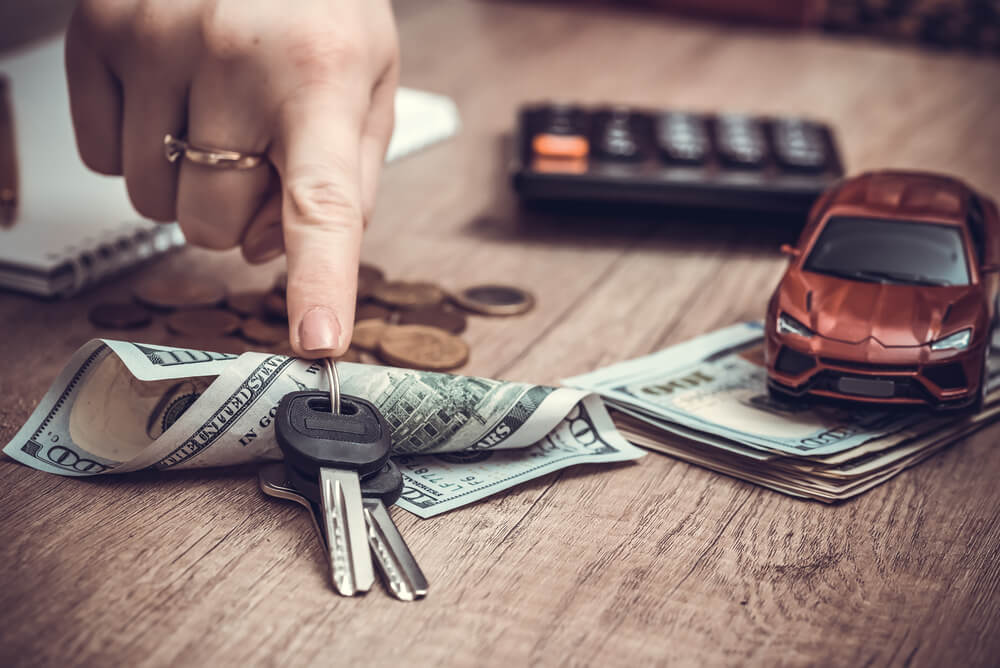
What Happens If You Don't Pay Medical Bills That Are Overdue?
Medical debt can be stressful and damaging to your finances. If you’ve wondered, “What happens if you don’t pay medical bills?”, the consequences can include credit score drops, wage garnishments, and even collections.
In this guide, we’ll cover the risks of unpaid medical debt and how a Tennessee title loan can help you access fast cash to prevent overdue bills from hurting your finances.
What Happens If You Don’t Pay Medical Bills?
The medical facility you owe money to may take any of the following measures to get the money they’re owed.
1. Late Fees and Extra Charges
Unsurprisingly, as with most other money you owe – if you don’t make your payments on time, you’ll likely have to pay interest on it.
2. Damage to Your Credit Score
Many people may not know what happens if you don't pay medical bills if the medical facility pursues other ways of pressuring you into paying what you owe. This is where things may get unpleasant. Medical bills are considered civil debt and it appears in your credit report, bringing the score down. Medical debt can remain on your report for up to 7 years.

3. Wage Garnishment
Okay, not the medical facility itself – but the court can do it in their steed. Here’s what happens if you don't pay medical bills and the facility you owe is determined to get their money – they will take the case to court, and the court may rule against you.
If this happens, it will most likely be in the form of a wage garnishment, which means a certain portion of your paycheck will go to them until the debt is fully paid off.
4. Collection Agencies
If the medical facility doesn’t wish to go into the fight on their own, they might bring in a debt collection agency to handle the problem for them. Debt collectors usually take over three months after the due date and work much harder to recover the money than medical providers – don’t expect that avoiding their calls and neglecting your debt may make the problem go away.
How to Avoid or Minimize Medical Debt
Now that you know what happens if you don't pay medical bills, here’s how you may avoid or at least minimize the trouble.
1. Request an Itemized Bill
First things first – is there a possibility you may have to pay less than you’ve been billed? Get an itemized bill and go through it with a fine comb. There’s a chance some of what has been billed aren’t billable in the first place.
2. Negotiate a Payment Plan
Get in touch with the medical facility and start negotiating. Be polite but firm. Go through the bill item by item and ask for a reduction. If you’re uninsured, chances are you’ve been billed the master (maximum) rate for your procedure.
If they aren’t budging on the bill, you might try filing a grievance. Another thing you can try is to ask for a payment plan adjustment – one that allows you to make realistic monthly payments towards your bill.
3. Explore Fast Cash Solutions Like Title Loans
- If you need fast cash to prevent your bills from going to collections, a Tennessee title loan could help.
- Title loans let you borrow against your vehicle without needing perfect credit.
- Find a title loan place near you for fast assistance.
Tennessee Title Loans, Inc. for example welcomes all potential borrowers regardless of their credit score and income situations, but that shouldn’t tempt you into getting one before making sure the decision you’re making is well informed and the pros outweigh the cons – and then you can request a loan from title loan places nearby.

How a Title Loan Can Help With Medical Bills
A Tennessee title loan allows you to use your car title as collateral for emergency cash, often within the same day. Here’s how it works:
- Submit an Online Inquiry
- Start by applying online.
- Bring the Required Items
- Lien-free car title in your name
- State-issued ID
- Your vehicle for a quick inspection
- Get Easy Cash Fast
- After approval, you could receive same-day or next-day cash to cover overdue bills.
Frequently Asked Questions About Title Loans
1. How much can I get with a Tennessee title loan?
Loan amounts depend on your vehicle’s value and your ability to repay, often up to $2,500.
2. Do I need good credit to qualify?
No. Title loans focus on your car’s title, not your credit score.
3. Can I keep my car during the loan?
Yes, you keep your car. The lender only holds your title until the loan is paid.
Get Easy Cash for Overdue Medical Bills Today
What happens if you don't pay medical bills can be more than just annoying, it can affect you for several years or end up affecting your pay. But you can actually make sure you’re not letting your bills go overdue today by qualifying for a title loan through Tennessee Title Loans, Inc. Submit an online form today to get started.
Note: The content provided in this article is only for informational purposes, and you should contact your financial advisor about your specific financial situation.